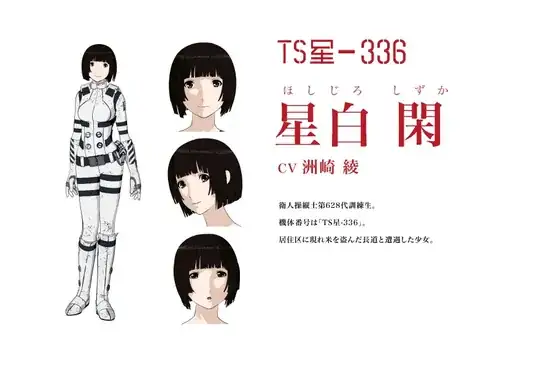Numbers frequently have cultural meaning, which can include superstition and foreshadowing. Anime shows, being Asian-derived (Japanese, right), likely have more local meaning. China represents just one example of cultural number meanins (ref: wiki, chinese.SE)
The characters in Knights of Sidonia have numbers on their helmets, so I'm wondering if they are at all connected to the fates of the characters wearing them.
From the Wikipedia article the digits "2 and 8" in a number mean "double lucky", while the digit "0" is also lucky and even. Inspection shows that Nagate Tanikaze's helmet contains these three values.
The digit "6" (in Cantonese) is supposed to mean "to fall" have some unlucky connotations.
Question:
Is there a direct connection between the characters' fates and the numbers on the helmets they wear? Please provide details, clarifications, and references as possible.
Partial list of character names and helmet numbers:
- Nagate Tanikaze, 028 in training, 704 as pilot
- Shizuka Hoshijiro , 336 in training, 702 as pilot
- Izana Shinatose, 291 in training, 723 as pilot
- Yuhata Midorikawa, 256 in training, moves to command.
- Eiko Yamano, 290 as cadet, killed in action
- Hinata Momose, unit designation 002, killed in action
- Kashiwade Aoki, unit designation 003, killed in action
- Izumo Midorikawa, unit designation 004, killed in action
- Ittan Samari, unit designation 005, often acting as field commander
- Koichi Tsuruuchi, unit designation 007, killed in action
- Tonami, unit designation 005, killed in action
- Ichiro Seii, unit designation 026, senior commander
- Do Imada, unit designation 139, killed in action with team (011, 217, and 312)
- En Honoka, 203 as cadet, 703 as pilot, injured in action
- Ho Honoka, unit designation 705, killed in action
- Ren Honoka, unit designation 706, survives.
- Norio Kunato, 001 in training, 701 as pilot, murderer, killed by Ochiai

